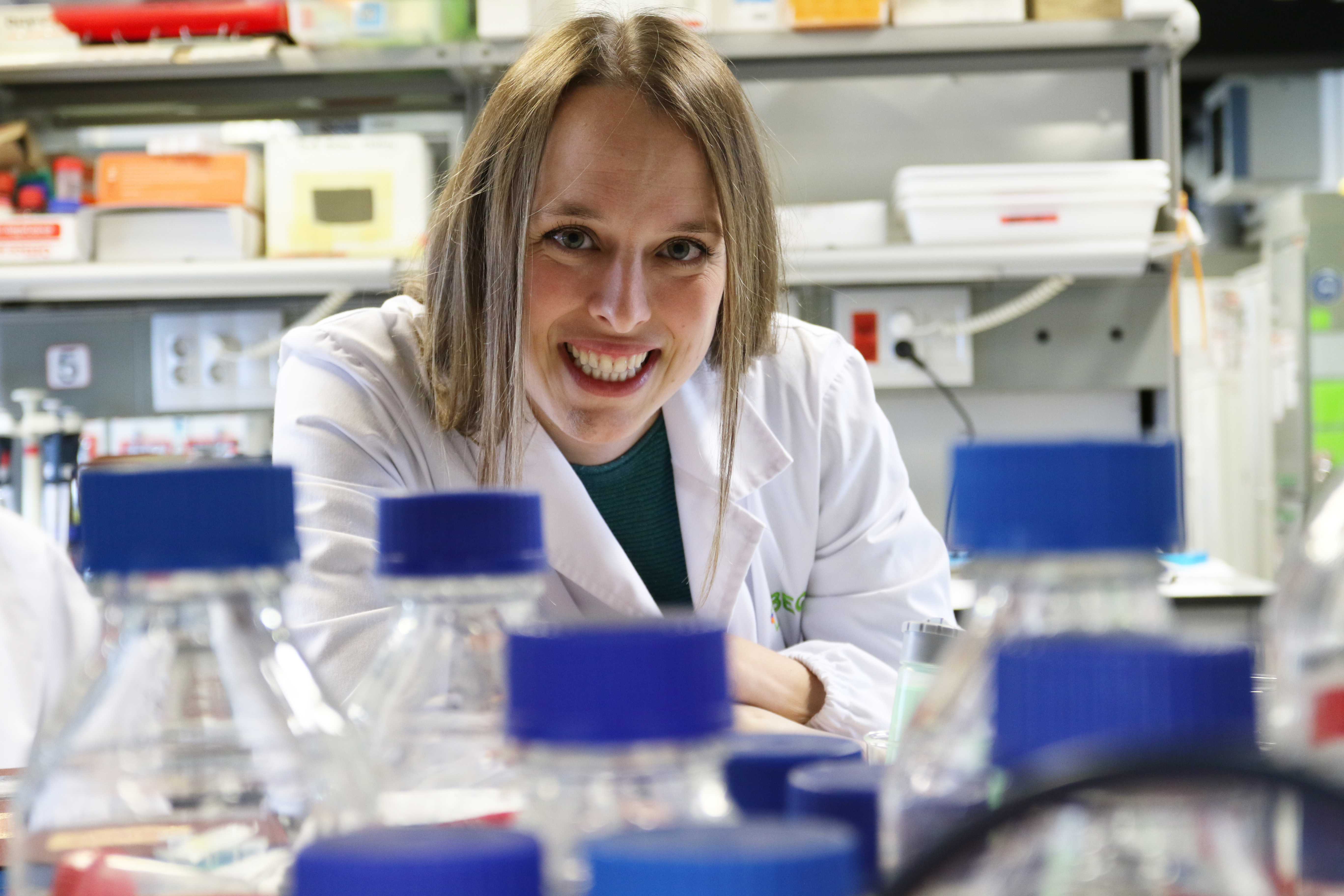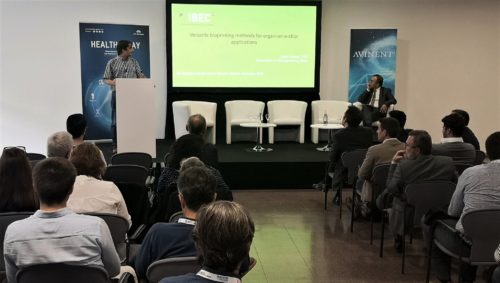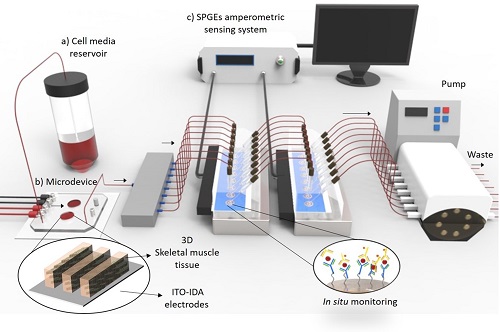Javier Ramon
Group leader
IBEC calls society to action to accelerate research against COVID19
The Institute for Bioengineering of Catalonia (IBEC) launches the Faster Future “A por la COVID19” campaign, with the aim of raising the 100.000€ needed to accelerate three research projects in collaboration with hospitals and patients associations.
IBEC participates in Innovation Day Barcelona 2020
From 31st October until 7th November participants from different fields and nationalities participated in the 3rd edition of the Innovation Day (i-Day), a series of events organised by EIT Health in partnership with local research and health institutions.
IBEC researchers awarded for their communication activities
Several researchers from IBEC have been awarded for their quality in spreading the word of bioengineering. From scientific talks, to videos and posters, IBEC scientists and engineers show their talent inside, but also, outside the lab.
Nanotechnology to improve human tissue growth in the laboratory
 Researchers from the Institute for Bioengineering of Catalonia (IBEC) have developed an innovative scaffold that allows muscle tissues growth at the millimetre scale in the laboratory.
Researchers from the Institute for Bioengineering of Catalonia (IBEC) have developed an innovative scaffold that allows muscle tissues growth at the millimetre scale in the laboratory.
This technology opens the door to potential applications in fields such as organ transplantation and engineering, drug screening and disease modelling.
Javier Ramón, new ICREA professor at IBEC
 Javier Ramón, Group Leader of the “Biosensors for Bioengineering” group at IBEC, has been appointed new Research Professor at the Catalan Institution for Research and Advanced Studies, ICREA. Currently IBEC hosts 8 ICREA Professors out of 22 group leaders.
Javier Ramón, Group Leader of the “Biosensors for Bioengineering” group at IBEC, has been appointed new Research Professor at the Catalan Institution for Research and Advanced Studies, ICREA. Currently IBEC hosts 8 ICREA Professors out of 22 group leaders.
Since last April 1, Dr. Javier Ramón, Group Leader at IBEC, has become part of the ICREA Research Professors community. ICREA is a foundation funded by the Catalan Government aimed at recruiting the most extraordinary and talented international scientific researchers. With this appointment, IBEC hosts 8 ICREA Professors and 2 ICREA Academia (UB affiliated professors), one of the highest numbers among all research centres in Catalonia.
IBEC leads a European Project to evaluate drug response in organ-on-a-chip devices
 A group of researchers from the Institute for Bioengineering of Catalonia (IBEC) leads the European project BLOC, an initiative led by researchers Javier Ramón and Irene Marco that seeks to evaluate the response to different drugs in metabolic diseases using organ-in-a- chip by using nuclear magnetic resonance (NMR). For this, the consortium will have a budget of almost 3 million euros, financed by the Horizon 2020 FET Open program.
A group of researchers from the Institute for Bioengineering of Catalonia (IBEC) leads the European project BLOC, an initiative led by researchers Javier Ramón and Irene Marco that seeks to evaluate the response to different drugs in metabolic diseases using organ-in-a- chip by using nuclear magnetic resonance (NMR). For this, the consortium will have a budget of almost 3 million euros, financed by the Horizon 2020 FET Open program.
How to choose the best drug for each cancer patient? Irene Marco featured at BigVan La Vanguardia
Irene Marco explains at BigVan, the scientific section of La Vanguardia journal, how thanks to microfluidics and research based on the use of “organ-on-a-chip” devices, we can go a step forward towards personalized medicine.
IBEC presents its capabilities in 3D bioprinting and in other industrial areas at the fourth INDUSTRY edition
During the 29th to 31st of October, IBEC participated in the fourth edition of “INDUSTRY: From Needs to Solutions”, the international meeting dedicated to 3D printing, and also the HELTHIO Days where Josep Samitier moderated the round table on 3D printing applications in healthcare.
In its fourth edition, IN(3D)USTRY becomes INDUSTRY to include more industrial sectors, the main goal is to cover the entire value chain and provide intelligent manufacturing solutions. The institute had a stand in the exhibition area, where the representatives of the IBEC Technology Transfer office welcomed the interested visitors to learn more about the 3D bioprinting capabilities of IBEC.
Researchers at IBEC develop a bioengineering platform to detect pro-inflammatory molecules in muscular disorders
The Biosensors for bioengineering group led by Javier Ramón has developed a sensing platform for the in-situ detection of tissue-secreted pro-inflammatory molecules, the so-called cytokines. This new methodology opens a new door in the understanding of metabolic-disorders such those found in muscular diseases, as well as the development of drug-screening applications.
Although 40% of total body mass is skeletal muscle tissue, there is no specialized clinical doctor for the treatment of muscular diseases, according to the American Medical Association. The research group of Dr. Javier Ramón at IBEC works to fill this gap between muscle disorders and ad hoc therapies.

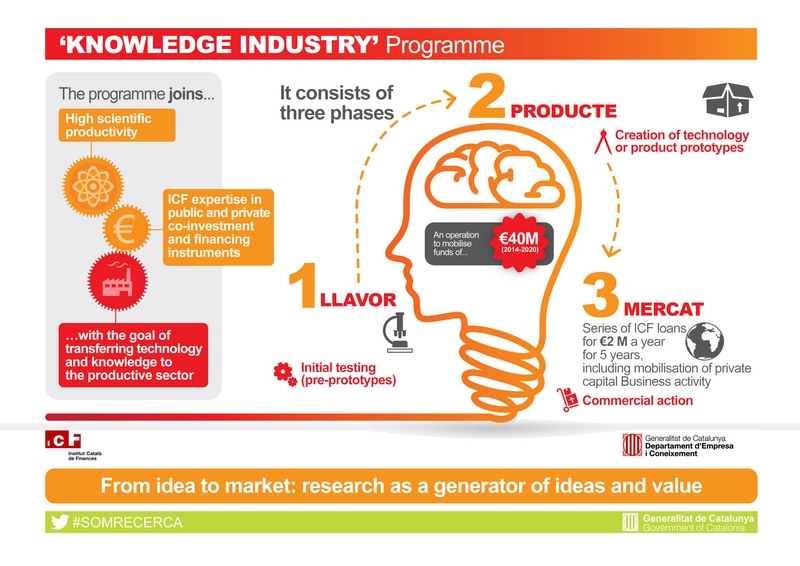
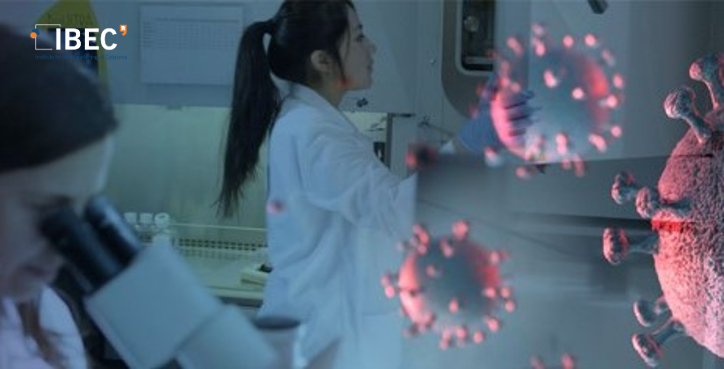
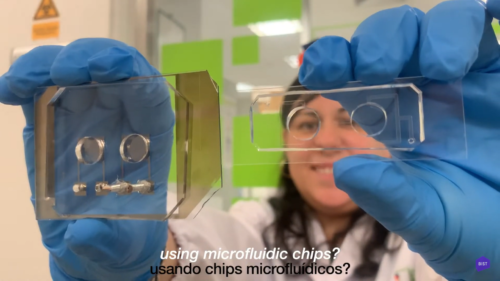
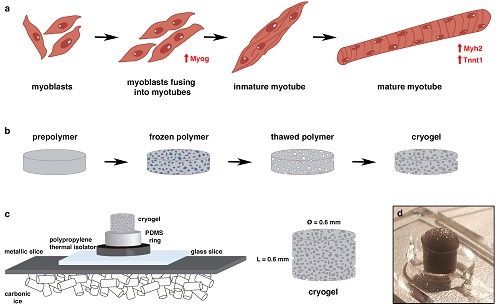
 Researchers from the Institute for Bioengineering of Catalonia (IBEC) have developed an innovative scaffold that allows muscle tissues growth at the millimetre scale in the laboratory.
Researchers from the Institute for Bioengineering of Catalonia (IBEC) have developed an innovative scaffold that allows muscle tissues growth at the millimetre scale in the laboratory.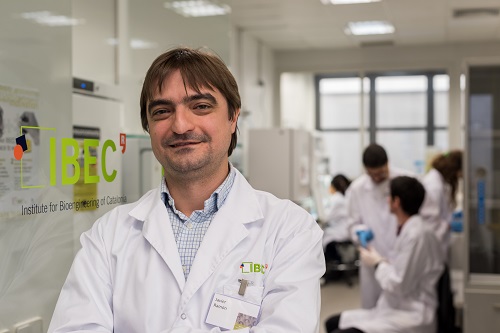
 Javier Ramón, Group Leader of the “Biosensors for Bioengineering” group at IBEC, has been appointed new Research Professor at the Catalan Institution for Research and Advanced Studies, ICREA. Currently IBEC hosts 8 ICREA Professors out of 22 group leaders.
Javier Ramón, Group Leader of the “Biosensors for Bioengineering” group at IBEC, has been appointed new Research Professor at the Catalan Institution for Research and Advanced Studies, ICREA. Currently IBEC hosts 8 ICREA Professors out of 22 group leaders.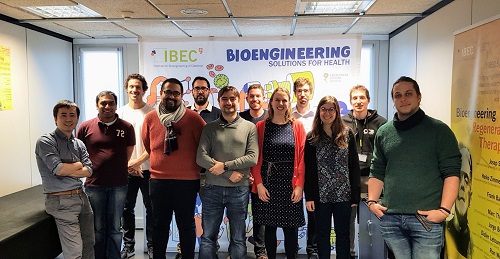
 A group of researchers from the Institute for Bioengineering of Catalonia (IBEC) leads the European project BLOC, an initiative led by researchers Javier Ramón and Irene Marco that seeks to evaluate the response to different drugs in metabolic diseases using organ-in-a- chip by using nuclear magnetic resonance (NMR). For this, the consortium will have a budget of almost 3 million euros, financed by the Horizon 2020 FET Open program.
A group of researchers from the Institute for Bioengineering of Catalonia (IBEC) leads the European project BLOC, an initiative led by researchers Javier Ramón and Irene Marco that seeks to evaluate the response to different drugs in metabolic diseases using organ-in-a- chip by using nuclear magnetic resonance (NMR). For this, the consortium will have a budget of almost 3 million euros, financed by the Horizon 2020 FET Open program.